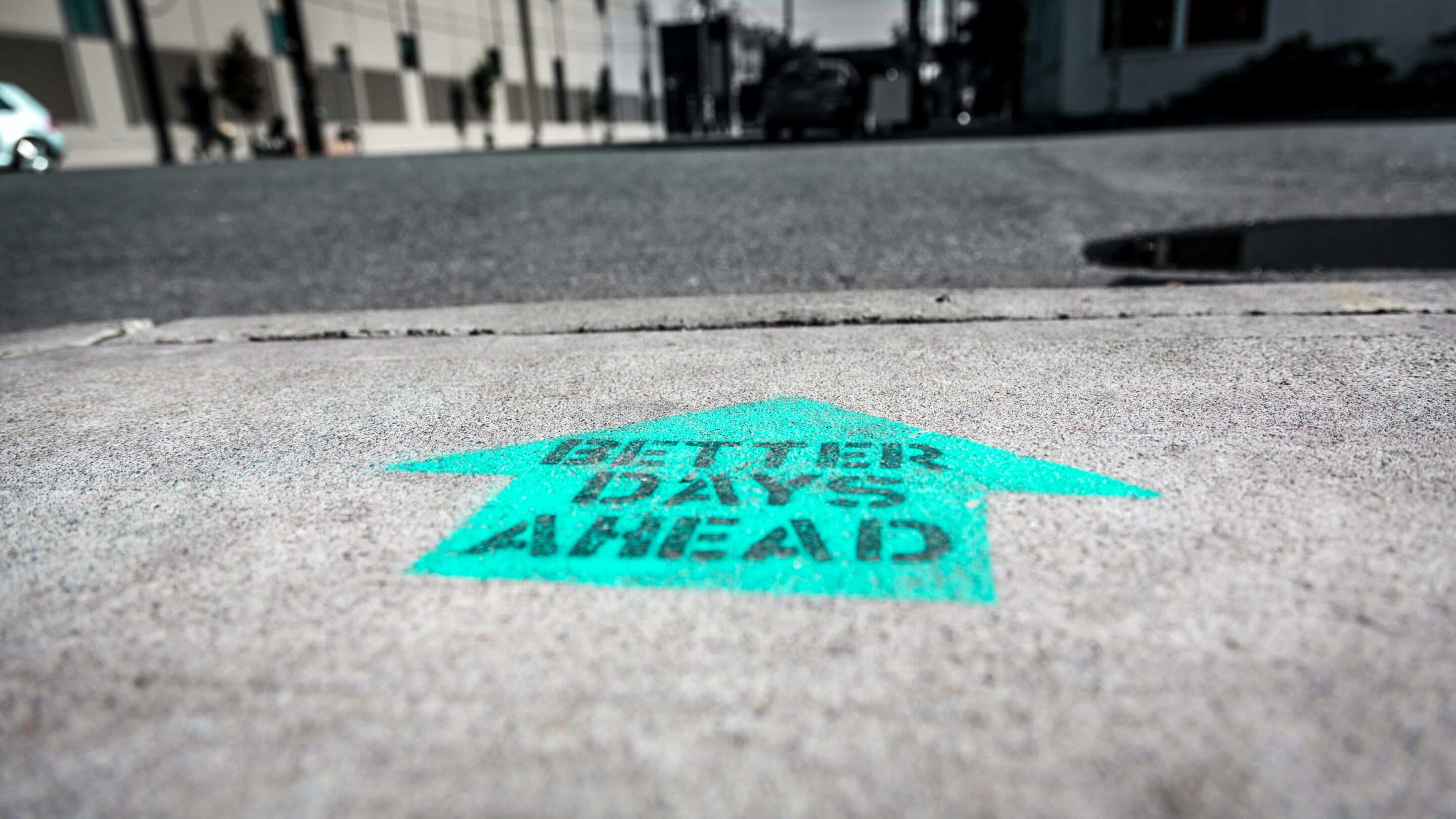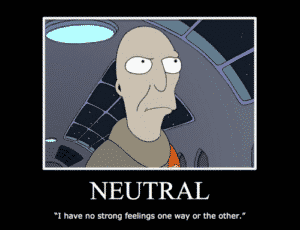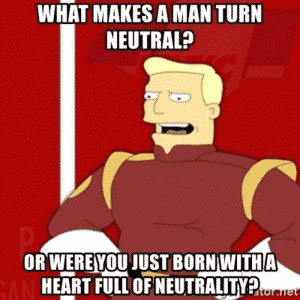The Personal and the Political: Body Neutrality and Body Positivity

The views expressed in this op-ed are those of the author and do not necessarily reflect the views of Brandeis University or The Body Positive.
Something is happening. More and more, I am hearing people suggest that we reject “body positivity” in favor of “body neutrality.” They imply that “body neutrality” is somehow more socially just – more inclusive – than “body positivity.”
The work I have done in the field of health promotion and specifically body positive education has trained me to be mindful – to pay attention to my body and how I feel in it. Each time I hear someone say “body neutrality,” I experience it in my body as a twinge. A contraction. A feeling of unsettlement, defensiveness, and a little bit of hurt.
So let’s examine that. My graduate work in health communication focused on how we talk about body image. I am a licensed Be Body Positive™ facilitator. I currently run a program for undergraduate and graduate students with “body positive” in its name. To be sure, I hold some personal investment in the nomenclature.
But I am well familiar with that initial kick of defensiveness in my belly when I am told that something I’ve always said is no longer the most equitable or just way to say it. I acquiesce and begin using the new, clunky-sounding terminology. After a while, it feels less clunky. The defensive feeling subsides and the new language becomes normal. Each time I practice this it happens more quickly and with less resistance.
My reaction to “body neutrality” is different. Let me explain.

Advocating for “body neutrality” is like advocating for “racial neutrality” instead of racial justice, or “queer neutrality” instead of queer pride. (Sidenote: Imagine a queer neutrality parade. How depressing.)
Pride, like positivity, suggests a celebration, a rising up, a coming out. It means taking something back, owning it, and to some extent throwing it back in your haters’ faces. Make no mistake, people hate body positive activists. They especially hate fat people who are not trying to lose weight, or have the audacity to be happy with their bodies.
When most people hear “body positivity,” they think about their own body image. We think about our personal struggles, suffering, and shame. The shame runs deep because we not only feel shame for our bodies, but also shame about feeling shame for our bodies. Many of us have also experienced violence in our bodies, or have bodies that do not align with our gender identity. Positivity may feel like too much to expect. Disconnection from our bodies can sometimes be a part of the healing process.
My intention is not to shame anyone for feeling more comfortable using the term “body neutrality.” But I do challenge you to examine those feelings. I challenge you to observe your reactions, without judgement, as you continue reading.
Positivity feels uncomfortable when we don’t feel positive, and it’s understandable to want an alternative that doesn’t force us to confront that discomfort. Body neutrality can feel like a more attainable goal than positivity. “Body neutrality” is also a term that makes it sound acceptable to not like your body very much. It says, “it’s okay to not love your body; you, your shame, and your trauma are welcome here.”

While calling ourselves and our communities “body neutral” may seem more inclusive (all are welcome, even those who hate their bodies), it offers no hope for anything better. It lets you know that no one here will encourage you to work on healing your relationship with your body. It suggests that the best we can do is hide our body image under the bed when we have company. It expresses our resignation to the idea that loving our bodies is impossible.
Loving our bodies is NOT impossible.
Loving your body isn’t easy, but it is possible. It doesn’t happen all at once. It grows slowly from discomfort to tolerance, from tolerance to acceptance, and from acceptance to love. And then we see a photo of ourselves we don’t like, and it’s back to discomfort, tolerance, acceptance and so the cycle repeats. But each time we work through the cycle, we build our resilience. We begin to recover more quickly with less effort. Body positivity is not a trophy you can win, put on a shelf, and never think about again.
But it is possible to improve your relationship with your body over time, with support, practice, and community.
“Body positivity” may sound intimidating or exclusive, but it shouldn’t. The problem lies in a fundamental misunderstanding: body positivity isn’t about our individual struggles with body image, it’s about a cultural paradigm shift.
Just like body mass index (BMI) was not designed to accurately measure an individual person’s health, the term “body positivity” was not meant to capture our personal and complex individual relationships with our bodies. Rather, the term refers to a cultural and political movement to protect our fundamental human right to accept, honor, celebrate, even (gasp) love our bodies in their myriad, diverse glory. It’s about justice for all bodies to be treated equally and fairly, regardless of shape or size or appearance.
Naming a space “body positive” means you are creating a supportive environment for individuals to explore or work on their body image, as well as creating a space where it’s actually okay to say positive things about our bodies out loud. Promoting body positivity means creating communities that make it easier for people to feel good about their bodies, and dismantling systems of oppression in order to reduce the devastating, widespread, and completely unnecessary suffering created by sizeism in our society.
Perhaps we have failed to make it clear that body positivity is for everyone, no matter where you are in your personal body image journey. You don’t actually need to love your body in order to support body positivity. You simply need to believe in the possibility of a better life for millions of people. Body positivity — not neutrality — is what will lift us up and move us forward.
To be sure, the body positive movement must hold itself to a high standard. Too often, it has succumbed to “good vibes only” pandering and toxic positivity, which looks good on Instagram but leaves no room for the nuance and real suffering present in the struggle for embodiment. A body positivity movement without space for pain and healing is not inclusive.
Body positivity cannot be apolitical. Without the fight for liberation from racism, sizeism, and other systems of oppression, body positivity is just lip service.
I look around and see progress. I see more diverse bodies in every-day advertising. I see plus size clothes being sold by more mainstream brands. I see big companies publicly aligning themselves with body positivity in an occasionally ground-breaking way. I see Gen Z growing up with more diverse bodies represented on TV shows and social media.
In our Be Body Positive™ groups, we talk about creating a “brave space” rather than a safe space. I know that it can feel uncomfortable to enter a body positive space or talk about body positivity when you don’t feel positive about your own body. But I encourage you to be brave, embrace the discomfort, and push forward to liberate yourself and generations to come from body shame.
A body positive society may still be aspirational, but please do not abandon the objective. We have come too far to surrender the promise of joy, compassion, and pride for our bodies in favor of something subdued, something yielding, something “neutral.”
Leah Berkenwald
Leah Berkenwald is the Director of Health Promotion and Wellness Initiatives at Brandeis University. She is a licensed Be Body Positive™ Facilitator and also serves on the Board of Trustees of the New England College Health Association.
